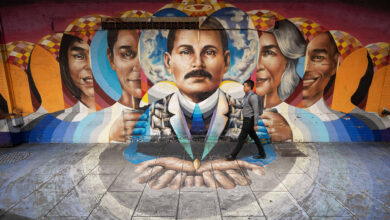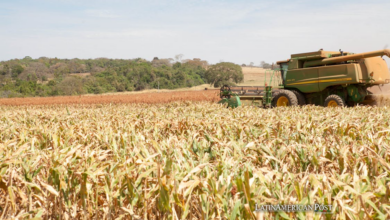Black individuals at higher risk for contracting COVID-19
Black individuals were twice as likely as White individuals to test positive for COVID-19.

In a study, Black race was associated with increased COVID-19 infection risk. / Photo: ATS
EurekAlert | American Thoracic Society
Listen to this article
Leer en español: Personas negras tienen mayor riesgo de contraer COVID-19
Results of an analysis published in the Annals of the American Thoracic Society found that Black individuals were twice as likely as White individuals to test positive for COVID-19. The average age of all participants in the study was 46. However, those infected were on average 52 years old, compared to those who tested negative, who were 45 years old on average.
"Association of Black Race with Outcomes in COVID-19 Disease: A Retrospective Cohort Study" is not the first to examine race. However, it provides further evidence that, while anyone can get COVID-19, race is indeed a factor in the extent to which some populations are affected. Of the 4413 individuals tested, 17.8 percent tested positive. Of those who tested positive, 78.9 percent were Black while 9.6 percent were White.
Study author Ayodeji Adegunsoye, MD, MS, assistant professor of medicine at the University of Chicago, sees logic in the results of the analysis as it relates to the infection rates along racial lines: "I think this really amplifies how pre-existing socioeconomic and health care disparities affect outcomes in the population. We already know that the common comorbidities that have been associated with COVID such as hypertension and diabetes disproportionately affect the Black community. So, it wasn't too surprising that COVID-19 seemed to more commonly affect Black individuals as well."
In addition, noted Dr. Adegunsoye, given that Black individuals are overly represented in the service industry, and therefore more likely to be essential workers, their risk of exposure to COVID-19 is greater: "Even during precautionary lockdowns to reduce spread, these jobs were often deemed essential services, and included jobs such as bus drivers, janitors, city sanitation workers, hospital food production personnel, security guards, etc. so it wasn't too surprising that Black people were disproportionately infected and subsequently hospitalized with the virus."
Also read: Sweden and Central African Republic, the best and worst countries for women
The results showing that the individuals who tested positive were older than their counterparts who tested negative is consistent with reports of infection rates in the U.S. and elsewhere. "We have observed that for various reasons, older individuals are more likely to develop severe symptoms when they get infected and therefore they are more likely to get tested for COVID-19," said Dr. Adegunsoye.
"It's a vicious cycle of sorts, as older people are more likely to have hypertension and other comorbid diseases, which further increase the risk for hospitalization with COVID. Even after accounting for their older age, Black patients were still at significantly increased risk of COVID-19 infection and hospitalization."
In addressing the disparity in COVID-19 infection rates, Dr. Adegunsoye proposes making COVID-19 screening free and widely accessible. He hopes that there will be an increase in policy decisions that result in increased funding for community-led prevention efforts as well as "improved public enlightenment campaigns targeted at minorities to reduce the risk of developing hypertension and diabetes."
These measures, together with renewed strategic focus on reducing health inequities, will improve the lives of all Americans.




